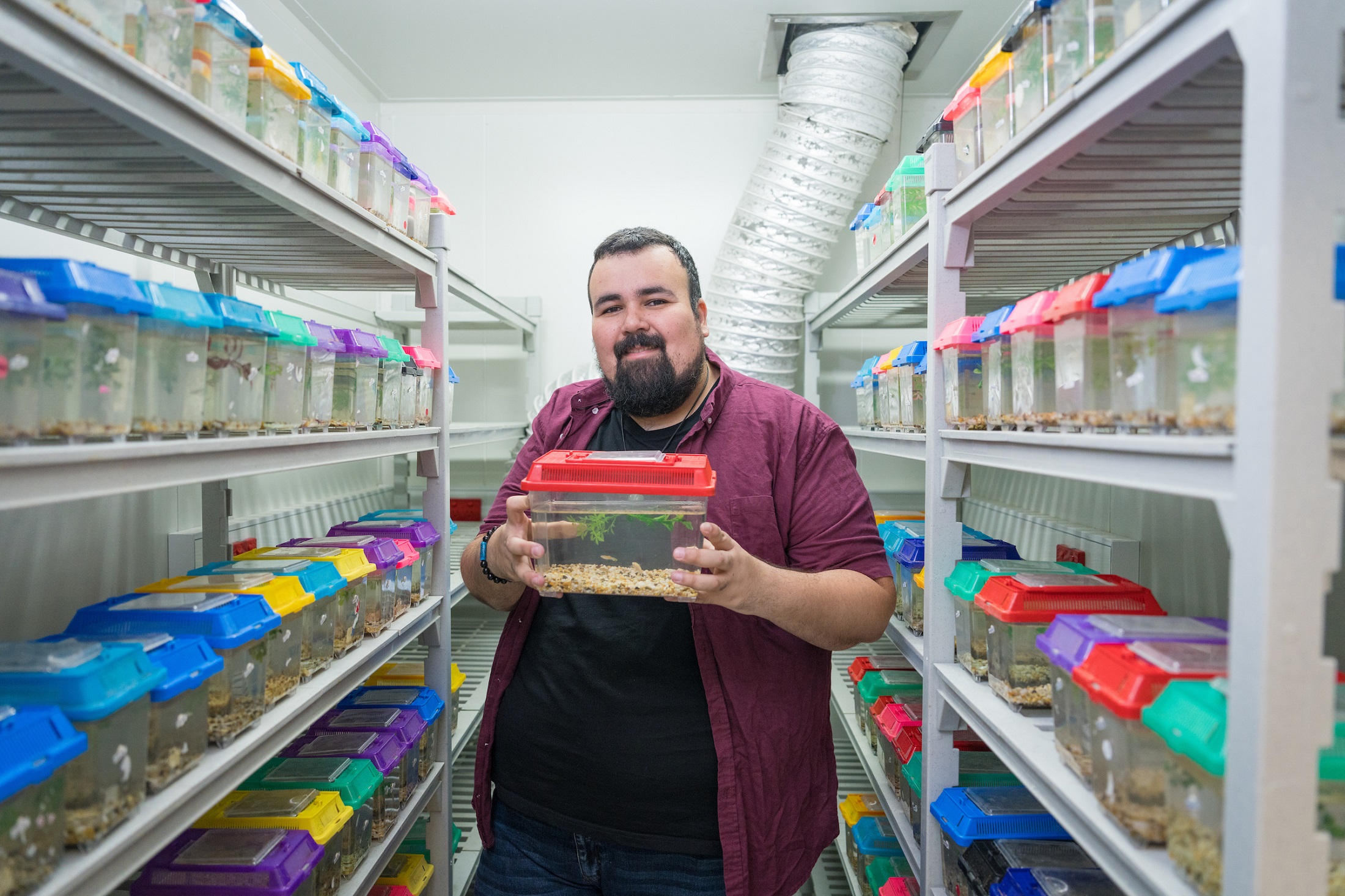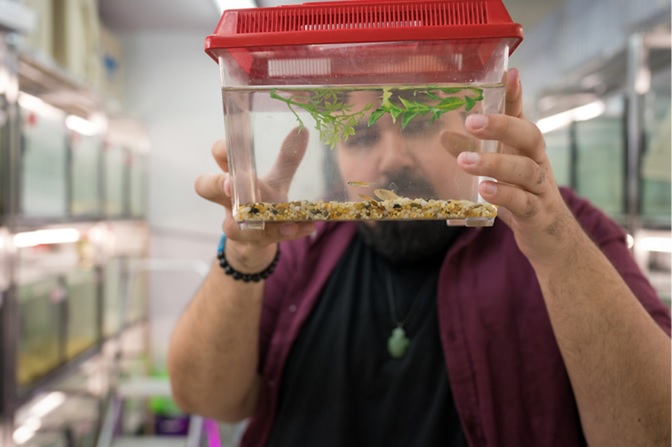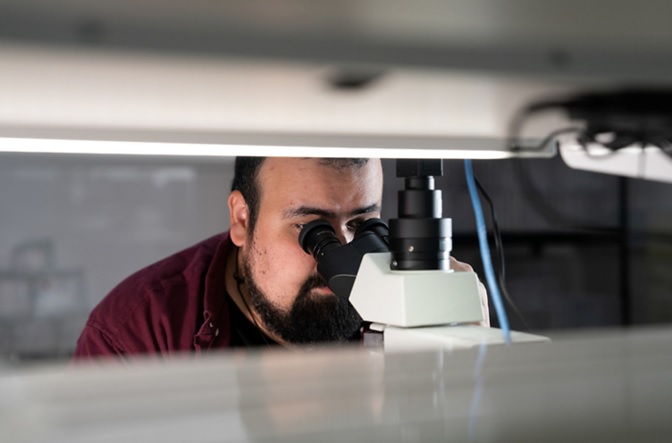
Guppy love: PhD researcher fishing for answers on sexual selection
Diego de Moura Campos is a PhD student at the ANU Research School of Biology. He spoke to us about his research and his study experience in Australia.
What’s the topic of your PhD?
I'm looking at how changes in the environment can change animal reproduction during early development in particular. So, if something happens with an animal during their development, does that have long term effects on their sexual traits?
You’re working with guppies, right?
Right. They’re a model organism for sexual selection because they have all these amazing reproductive traits that we can measure. For example, in a previous experiment, I changed their food availability and increased the water temperature to see how it affected their sperm production and the colouration in their body. The colouration is important because female guppies really love the colour orange and the males like to show it off and do a little dance for them.
You know exactly what the lady guppies like!
Yeah, I do a lot of matchmaking! I watch fish have sex a lot. It is uncomfortable, but I have to do it! I pair virgin males and virgin females in the same aquarium and watch them interact, and some of them are so attracted to each other that a month later there are babies. When I find them, I think: ‘Oh, I watched those babies being conceived!’
What are your results showing so far?
We’ve found something very interesting. First, we found the effect of temperature to be negative, which is expected. When the animals grow up in high temperatures, they are smaller, they die more, have less colouration, and are less dominant to other males.
But there was also something unexpected. We thought that if they had less food, they would do bad, right? But no! We found a positive effect of diet restriction. If the guppies received less food when they were growing up, they invested more in reproductive traits later in life: so more orange coloration and more sperm. We were not expecting to find that.
That’s super interesting.
Right? The fish went through hardship and then they got better. If you think about it in a philosophical way in our own lives, it could be that experiencing hardships when you're younger can maybe help you in the future!
Have you learnt any other life lessons from the fish?
Let me think. Well, because they have such a fast life cycle, that does remind me of how fast life can be. But they are also very calming. Sometimes when I have spent the whole day writing my PhD, I just go to the aquariums and watch the fish for five minutes and think: ‘This is cool. I remember why I like this. Now I’m going to go back and write again.’

Are the humans at ANU good company too?
Absolutely! The Division of Ecology and Evolution has a good cohort of international students and we all click because we’re all new in a new city. It’s been really great. I have made some very good friends and they have become the support system you need if you’re doing your PhD in a different country.
Why did you choose to come to ANU from Brazil?
As a biologist, Australia is the dream, right? It’s so unique because of its biodiversity. After I did my masters, I wanted to work with sexual selection so I was looking for the best universities in that area which also had a good investment in science. Looking into it, ANU was a match and it was absolutely a dream come true to come to Australia.
How have you settled into Canberra?
The weather in Canberra is very different from Brazil so I was a little bit terrified at first, but I fell in love with Canberra immediately. Even though it's a small city, it's got all the infrastructure of a big city, and there are animals everywhere which just fills my heart.
What are some of the challenges for international PhD students?
I think overall, coming from a different country, especially if you’re a non-native speaker, you just feel less confident. I was also switching fields, so that made me feel unsure of myself. You think everybody else has like a secret, hidden knowledge, and that you're the only one who doesn’t.
But you have to trust yourself: even if you're changing fields, even if you're speaking a different language, your knowledge won't go away. It's still with you, and it's still important, and it can still be applied.

And most other people don’t really know what they’re doing either.
Exactly. That is the good thing about having a good cohort, because if you feel intimate enough to share your insecurities with people, you see that you’re not crazy and everybody's thinking the same thing. Everybody who has switched fields feels like, ‘I don't know enough.’ And everyone continuing to work in the same field thinks, ‘Oh, my God, I should know this already!’ So everyone is having those battles.
Finally, what is your favourite Australian animal?
Can I say two? I love the cockatoos! I am obsessed with them and the fact that you can see them everywhere in Canberra. They remind me a lot of the parrots back in Brazil. They are so smart and so silly at the same time.
But then I also love the corroboree frog, the black and yellow one. They are so beautiful. Back in Brazil I worked on colourful frogs for my masters so I have that special place in my heart for colourful, poisonous frogs.
